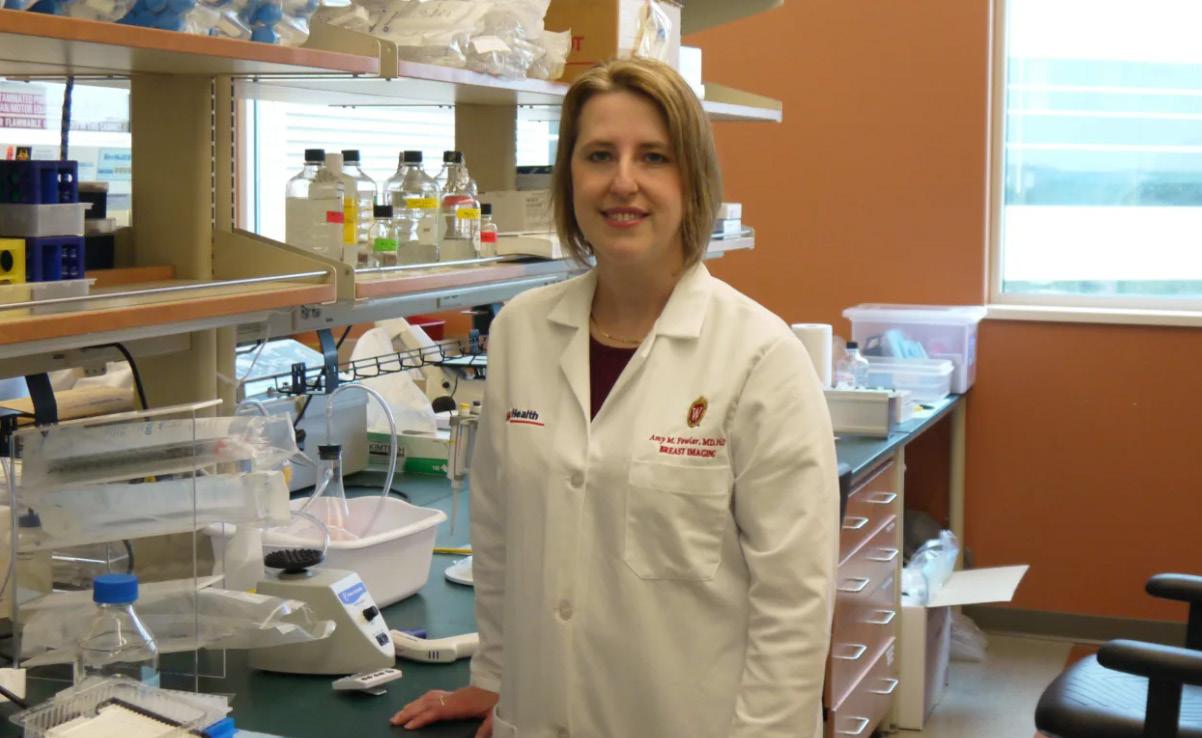
2 minute read
Amy Fowler Begins Trial to Identify Hormone-Resistant Breast Cancer
Amy Fowler, MD, PhD harnesses the power of positron emission tomography (PET) and magnetic resonance imaging (MRI) scans in her new clinical study to improve the precision of early-stage breast cancer treatments prior to surgery.
By administering a targeted imaging agent and tracking it via simultaneous PET/MRI scans, Dr. Fowler can observe the effectiveness of hormone therapy given before surgery. When hormone therapy is given before surgery, it can potentially shrink tumors and reduce the amount of breast tissue removed during surgery. This makes pre-surgical hormone therapy a potentially effective treatment option for some patients.
However, there are types of breast cancer that are hormone resistant and are unaffected by this course of treatment. The challenge is identifying hormone-resistant cancer prior to treatment.
Through this trial, Dr. Fowler aims to better identify the cancers that are hormone sensitive versus those that are hormone resistant, which will help guide the treatment decision process for a patient. This imaging technique could provide a less-invasive alternative to needle biopsies in tracking treatment progress for patients.
“In my clinical work at the Breast Center as a radiologist, we do image-guided breast biopsies, and many patients say that it would be nice to get all the information about a tumor, or as much as you can about a tumor, without needing more biopsies.”
This clinical trial builds on years of lab research and pilot studies by Dr. Fowler and colleagues at UW to test the imaging agent. Dr. Fowler also collaborates with members of the Breast Cancer Research Advisory Network at UW, a group comprised of breast cancer survivors, caregivers and advocates who work with researchers to provide a patient perspective on research proposals, grant submission and designing clinical trials.
“It’s been very key for, especially for clinical trials, to understand what’s reasonable to ask of patients in terms of the study design,” she said of their perspectives.
This trial is currently open for patients who are interested in participating.











